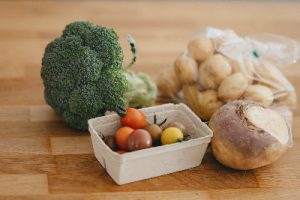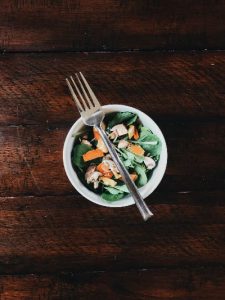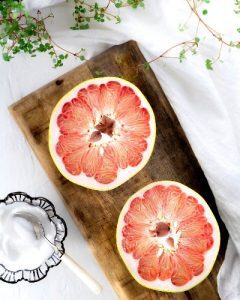This article about mental health eating advice is by holistic therapist Emma Sims.
Imagine yourself as a car and your weekly diet as the fuel. How would the engine perform, bearing in mind the quality of what is powering it? Remember, a journey of 1,000 miles starts with the first step. Make one small achievable change and build on this to create lifelong habits that will improve your mental health and well-being. Is there enough water in your tank?

Is there enough water in that tank? Your urine should be straw-coloured; darker colours indicate dehydration. Between 2.5 and 4 litres of water a day is the recommended amount and may help with symptoms such as headaches, confusion, irritability, dry skin, poor concentration, stiff joints and constipation.
5+ a Day
Adding salad and vegetables to every meal may make a real difference to your mental and physical well-being. More variety – and fibre – feed the good bacteria in our gut which helps with immunity. Vitamins and minerals are also essential to support mental health and physical well-being. Pizza for tea? Have a big salad too. Try salad for breakfast: scrambled eggs and bacon are delicious with spinach leaves and rocket. Also, B vitamins found in green leafy vegetables (pork, chicken, eggs, and whole grains) help our mental health, nervous system, and energy levels.

Misery Guts
You may or may not have heard of the gut-brain axis. Probiotics help our gut health which connects to the brain via the vagus nerve to help our mental health. People with anxiety and depression may experience digestive issues, and certain “strains” of probiotics may help. You find probiotics in foods such as bio yoghurt, kombucha, kimchi, miso, kefir and other “ferments”. Probiotics are also available in a capsule too or as a multivitamin.
Protein Wise
Foods such as chicken, pork, nuts and milk help boost the natural antidepressant serotonin in our body. Two portions of oily fish weekly give us the mood enhancer omega 3.

Sickly Sweet
Over-consumption of sugar contributes to diabetes, high blood pressure and obesity, and can trigger sugar highs, depression or “hanger”. We should have less than 30g of any sugary substance a day so watch out for hidden sugar in processed foods. Artificial sweeteners or additives do not lead to vibrant health and you are best to avoid them. Excess sugar (childbirth, stress and alcohol) also depletes the calming mineral magnesium, helping with anxiety and sleep.
Lack of vitamin D, the sunshine vitamin, can bring on the winter blues and low immunity. Natural sources are liver, egg yolk, oily fish, and beef, but experts frequently recommend supplementation in the UK.
Eating a proportionally-balanced diet with protein (meat, fish, eggs, pulses, nuts), vegetables and starchy carbohydrates (potato, rice, grains) and as freshly prepared as possible (even homegrown) is ideal. However, it can be challenging to do so if feeling anxious, depressed, ill or stressed. Supplements may be of great help so have a chat with a nutritionist, GP or pharmacist.
If you have health conditions or are on medication, they all may help give you that all-important jump-start for your well-being journey.
Emma Sims is a complementary holistic therapist, intuitive practitioner and Reiki teacher with 20+ years’ experience in this field. She has a clinic at the Community Resource Centre in Gwersyllt.
Emma has written a book about self-care available through Motiv8.Me. Obtain further details from emmasims.co.uk.
We hope you enjoyed reading our article about “mental health eating advice”. Please see our other articles on well-being.
Main photo by Maddie Bazzocco on Unsplash.

